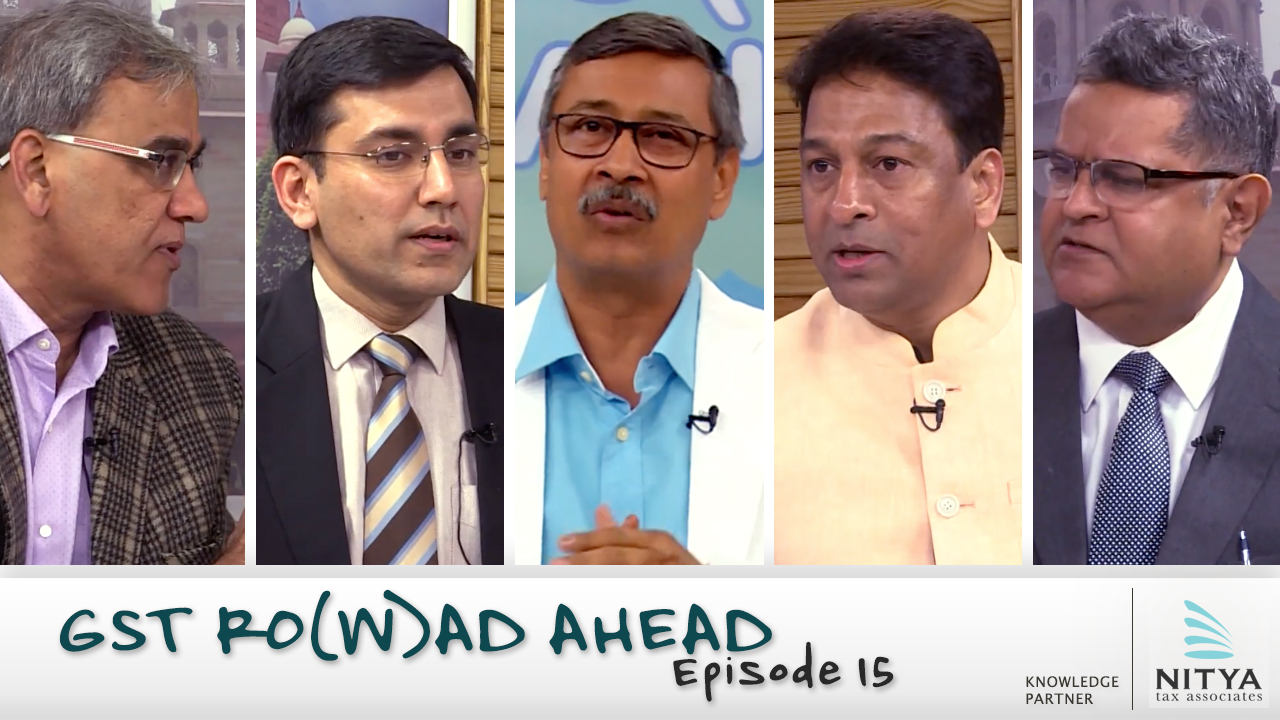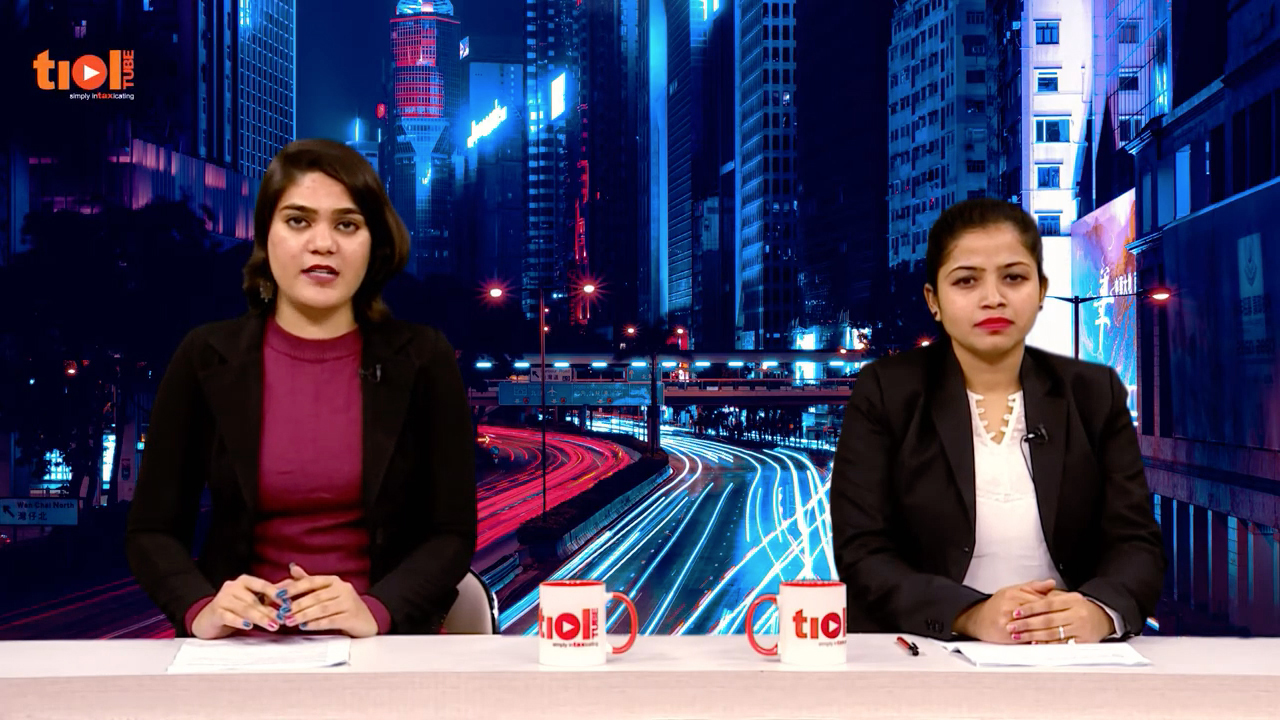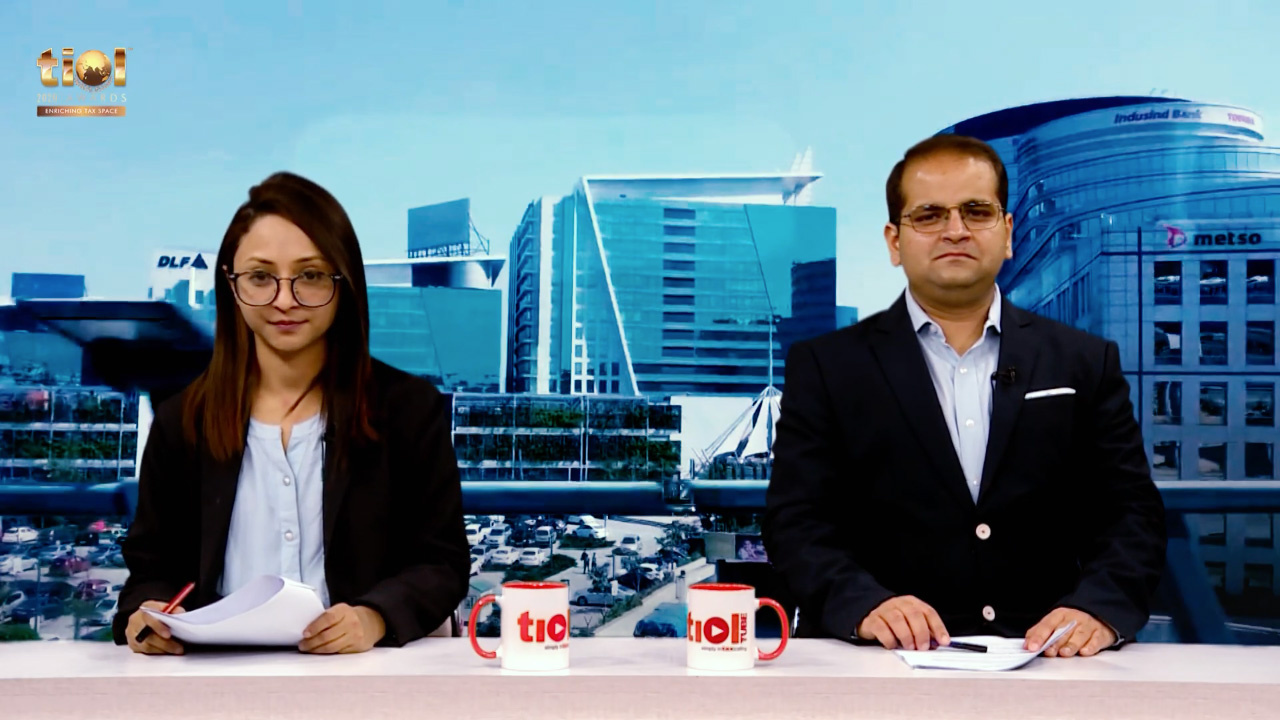| SERVICE TAX
2020-TIOL-911-HC-P&H-ST
PR Commissioner Vs Raj Kishan And Company
ST - CESTAT while allowing the appeal held that the service provided by the Respondent was classifiable under the category 'Works contract Service' in terms of the decision of the Supreme Court in Larsen & Toubro Ltd. - 2015-TIOL-187-SC-ST, whereas the demand has been created against it under the category of 'Construction of residential complexes and Commercial or Industrial Construction Service' – Revenue in appeal before High Court - a preliminary objection was raised by the Respondent as to its maintainability essentially on the ground that a matter involving a dispute concerning classification would not be entertained by this Court in view of the Section 35L of the CEA, 1944 read with Section 83 of the FA, 1994 - it is pointed out that the Appellant itself has taken an inconsistent stand inasmuch as in matters involving similar issues of classification, it has chosen to file an appeal directly before the Supreme Court.
Held: There appears to be merit in the contention raised by the Respondent - Indeed, whether the services provided by the Respondent were classifiable directly as 'Construction of residential Complexes and Commercial or Industrial Construction Service' or as 'Works Contract Service' was a neat question of law - The case involves the issue of classification and, therefore, in such instance an appeal against the order of the CESTAT would lie in the Supreme Court under Section 35L of the Central Excise Act, 1944, even if there are other questions involved - This view finds support from the decision of this Court dated 14th March, 2017 in CEA-18 of 2016 (Principal Commissioner v. Raja Dyeing) - As such, the present appeal before this Court is not maintainable - appeal is accordingly dismissed. [para 16 to 18]
- Appeal dismissed: PUNJAB AND HARYANA HIGH COURT
2020-TIOL-703-CESTAT-DEL
Prerna Singh Vs CCGST, C & CE
ST - Appellants are co-owners of a ground floor of a property known as NCR Plaza - The owners of the aforesaid NCR Plaza property entered into an agreement with M/s ICICI Bank Limited for the rent payable for the premises by the bank and each of them was to get a certain percentage share of the total rent - Revenue in a SCN issued to the four appellants proposed clubbing of the rent share and concluded that since upon clubbing, the exemption limit was exceeded, service tax was payable - as demand confirmed by lower authorities, appeal to CESTAT.
Held: Issue has been decided by an order dated 30.05.2018 in favour of the Appellants in the four Appeals filed by them for the earlier period from June, 2007 to June, 2012 - Division Bench had relied upon a decision rendered by the Chandigarh Bench in Anil Saini - 2017-TIOL-1234-CESTAT-CHD holding that the benefit of the exemption notification would be available to individual owners of the property and clubbing of rent of all the four individual co-owners of the property was not legally sustainable - No reason for the Bench to differ with the said decision, hence the impugned order passed by the Commissioner (Appeals) clubbing the rent of all the four Appellants was not justified - Each of the individual owners would be entitled to the benefit of exemption notification - Impugned order is set aside and the appeals are allowed: CESTAT [para 7, 8]
- Appeals allowed: DELHI CESTAT
2020-TIOL-702-CESTAT-MUM
Ghodawat Energy Pvt Ltd Vs CCE & ST
ST - Legal services rendered by overseas entities - service tax demanded under reverse charge - Invoices furnished by appellants reveals that these pertain to advise rendered by M/s Eversheds LLP, Singapore - These do not come within the purview of exclusion of charges for representation before courts or tribunals - argument of cessation of tax on services provider from outside India after 1st July 2012 fails as taxability came under the umbrella provision of section 66B of Finance Act, 1994 read with Place of Provision of Service Rules, 2012 - as 'deemed provider of service', appellant was obliged to discharge the tax liability and was entitled to avail of credit under CENVAT Credit Rules, 2004 - Motive for suppression, misdeclaration or evasion of tax is, thus, not patent - In these circumstances, the recovery of tax on the charges paid to M/s Eversheds LLP in notices that extended beyond the normal period of limitation stands barred - Such quantification requires scrutiny of all the relevant invoices raised by M/s Eversheds LLP for separation of the wheat from the chaff - Bench is unable to conclude that task in the absence of the invoices and to render that task complete, matter is remanded back to the adjudicating authority for such quantification - appellant is directed to furnish the details of the relevant invoices/notes for this purpose failing which the adjudicating authority is at liberty to construe lack of such evidence: CESTAT [para 9, 10, 12]
- Matter remanded: MUMBAI CESTAT
CENTRAL EXCISE
2020-TIOL-705-CESTAT-KOL
SAIL Vs CGST & Excise
CX - Assessee is engaged in manufacture of steel and had availed cenvat credit on railway construction materials and wagons which were used to main railway tracks and for transportation of raw materials, finished goods within the factory premises - For transportation of raw materials within the factory premises, wagons had been used - So, the cenvat credit was claimed on wagon in view of Tribunal's decision in case of Tata Steel Ltd. - Regarding the cenvat credit availed on railway track materials, it was claimed that the same was used for transportation of raw materials and finished goods within the factory premises, therefore, the same goods are also eligible for cenvat credit and the same were allowed by lower authority for the reason that railway sleeper, railway track construction material and locomotives which were used in laying the track is the part of the material handling system used by assessee to transport raw material, coal, coke, machines parts, metal ladles, slag ladles, flue dust, slag and finished products within the factory premises - Regarding the use of wagons within the factory premises for transfer of raw materials and finished goods, the identical issue pertaining to the railway track came before Tribunal in case of Tata Steel Ltd. 2016-TIOL-881-CESTAT-KOL and relying upon the judgement of Supreme Court in case of Jayaswal Neco Ltd. 2015-TIOL-70-SC-CX , it is held that the cenvat credit was allowed on railway track material used for handling raw materials, process goods - By respectfully following the ratio as laid down by Supreme Court, appeal filed by assessee is allowed: CESTAT
- Appeal allowed: KOLKATA CESTAT
2020-TIOL-704-CESTAT-DEL
Hardwyn Industrial Trading Corporation Vs CCE
CX - As the Order-in-Appeal dt.02.05.2011 was not appealed against by the department, the issue has attained finality - Under the circumstances, it is impermissible for the department to re-agitate the issue of validity of the assignment deed in another proceedings, emanating from the same cause of action - In the present case, both the show cause notices dt.24.02.2010 and dt.28.10.2013 arise out of the same cause of action, namely, the search operations conducted on 26.08.2009 - In the proceedings under show cause notice dt.24.02.2010 it was held vide Order-in-Appeal dt.02.05.2011 that the assignment deed in respect of HARDWYN brand was valid, therefore, it is impermissible to doubt validity of the assignment deed dt.17.02.2006 in the subsequent adjudication - so long the assignment deed in favour of the appellant remains valid, the appellant is entitled to exemption under Notification No.8/2003 CE dt.01.03.2003 as amended, in respect of goods bearing HARDWYN brand, manufactured by them: CESTAT [para 18, 19]
CX - Entire sale value in the profit and loss account of the appellant assessee relating to the relevant period has been taken as clearance value of HARDWYN brand goods by the department - It is admitted fact that the appellant is also manufacturing goods with 'FIBA' brand and this proves that the department has presumed the description and value of excisable goods cleared during the relevant period, for recovery of duty - It is settled law that duty cannot be demanded on assumptions and presumptions - In the present matters, since the description and value of the excisable goods has been presumed by the department, the demand of duty on basis of such presumed facts is unsustainable in law and hence has to be set aside: CESTAT [para 22]
CX - Limitation - Bonafide belief - Bench agrees with the appellant that they were under bonafide belief that they were using their own brand names and hence eligible to S.S.I exemption - Such bonafide belief was vindicated by the Order-in-Appeal dt.02.05.2011 - It is well settled law that extended period of limitation is not available to the department in cases where the assessee entertains a bonafide belief about non-levy of central excise duty - Under the circumstances, the extended period was not available to the department and the demand of duty is, therefore, hit by bar of limitation also: CESTAT [para 23]
- Appeals allowed: DELHI CESTAT
CUSTOMS
2020-TIOL-701-CESTAT-MAD
R Devendiran Vs CC
Cus - Appellant fairly submitted that the present appeal was filed by the assessee himself whereas the proper remedy was to file revision petition before the appropriate authority; that, therefore, the appellant may be given liberty to file revision petition before the appropriate authority by condoning the delay caused due to filing of this appeal before the wrong forum.
Held: Assertion of the appellant is true inasmuch as the appeal has been filed wrongly before the CESTAT whereas the proper remedy was to approach the Revisional Authority - Takeaway from the apex court decision in M.P. Steel Corporation - 2015-TIOL-89-SC-CUS is that the appellant should only approach the Revisional Authority and rely on the cited decision to convince the Revisional Authority that he had gone before a wrong forum and, therefore, the time spent before the wrong forum is required to be condoned - it goes without saying that an aggrieved person is always having liberty to approach the appropriate Appellate/Revisional Authority for remedies - appeal is held as not maintainable: CESTAT [para 4.2, 5]
- Appeal rejected: CHENNAI CESTAT |







